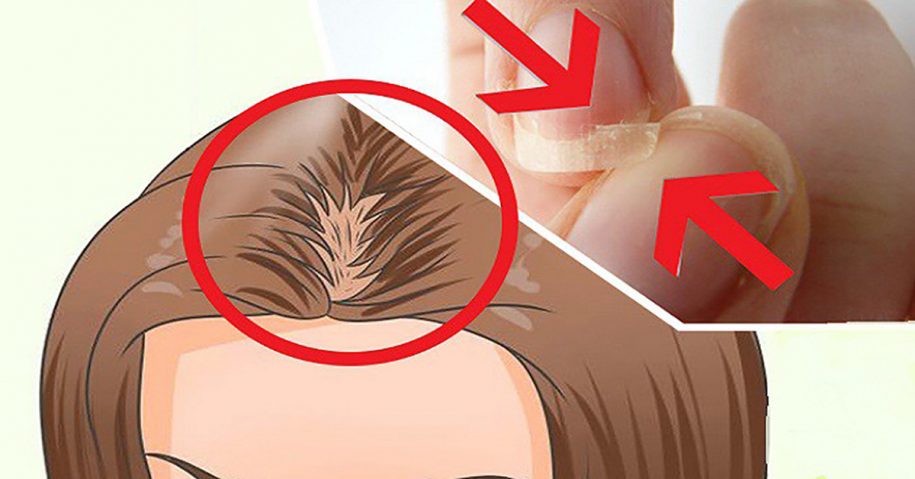Twenty years ago, Peter Attia was a surgical trainee at Baltimore’s Johns Hopkins Hospital, where he saved countless patients from what he refers to as “fast death.” He informs me, “I trained in a very, extremely vicious city.” We were probably shooting or stabbing 15 to 16 individuals on average every day. And in certain circumstances, surgeons can actually save your life. We excel at doing that.
He claims that the patients he saw who were experiencing considerably slower deaths were what really got to him. We were far less successful in saving all of the people who had cancer and cardiovascular disease. Although we could slightly postpone their deaths, we couldn’t change how long they lived.
Attia frequently worked 24-hour shifts with his coworkers, depriving him of sleep. After finally falling asleep, he had a dream that kept coming back to him in which he was standing in the center of the city, clutching a cushioned basket, and gazing up at a neighboring structure. He was doused in eggs, and despite his best efforts, the majority of them inevitably fell to the ground and shattered.
It didn’t take long to decode the symbolism: here was all his disquiet and worry about attempting to save people who were inexorably dying without addressing the root of the issue—the way they lived. He claims that climbing to the roof and removing the basket of eggs from the man who was tossing them seemed to be significantly more effective than attempting to capture the eggs before they struck the ground. But just as in real life, that element of the story was never told in the dream.
Life expectancy is decreasing in the US due to the prevalence of chronic diseases, and the situation is similarly gloomy in the UK. But Attia is convinced that things can be changed. He is at home in Austin, Texas, where it is 11 a.m. on the day we chat. He hasn’t eaten anything for breakfast other than a cup of coffee, but that doesn’t stop him from talking for well over an hour about his main goal: extending people’s “health span” in order to maximize their chances of staying disease-free and reduce the amount of time they spend being frail and infirm, possibly to as little as six months.
Toronto-born Attia just turned 50 years old. He founded Early Medical, a facility in Austin that informs its patients about the types of medical procedures and way of life he supports. The Peter Attia Drive, a weekly podcast he hosts, recently covered topics like the seriousness of the US opioid crisis, the hazards of getting too little sleep, and the evolution of the cell. He appeared in the Disney+ series Limitless last year as one of its stars. Chris Hems worth, an Australian actor best known for playing the Marvel superhero Thor, embarked on a journey to “combat ageing and discover the full potential of the human body.”
And now a book is available. Outlive, entitled “the science and art of longevity,” was written with the assistance of seasoned journalist Bill Gifford and is a thorough, clear explanation of Attia’s beliefs. Although the life changes it outlines may seem difficult and sophisticated, their fundamental premise is blatantly straightforward. By enhancing our lives in five “tactical domains”—exercise, “nutritional biochemistry” (i.e., what and how much we eat), sleep, emotional health, and “exogenous molecules”—or, as they are more commonly known, drugs and supplements—Attia claims that we can deal major blows to the “four horsemen” of diabetes, cancer, heart disease, and dementia.
While the majority of what Attia lays forth is about how individuals might change their odds of remaining healthy and resilient into old age, it inexorably veers into major issues with how healthcare systems are set up and the philosophy behind them.
He creates three divisions in the historical development of sickness and medicine. He refers to the unsteady method of operation that humanity relied on for thousands of years as “Medicine 1.0”: a system that was “based on direct observation and aided more or less by pure guesswork.” Beginning in the middle of the 19th century, that model started to give way to Medicine 2.0, which was based on advancements like the invention of the microscope, the discovery of antibiotics, and exhaustive scientific investigation and experimentation. Although Attia wants us to switch to Medicine 3.0, which “places a far greater emphasis on prevention than treatment,” we remain adherent to this approach.
He is more interested in improving people’s quality of life than their length of life. Lifespan is such a… I want to say dirty, but that word has been so misappropriated,” he says. And it simply has a pejorative connotation. It kind of has the odor of, you know, false promises, elixirs, and snake oil. Health span, on the other hand, doesn’t seem to garner enough attention. A curse, not a benefit, is having a longer lifespan without an increase in health span.
Attia does not market “biological reprogramming technology,” a new field of study that attempts to lengthen human life through methods including removing aging or “senescent” cells from the body and reprogramming adult cells to become stem cells. In the US, this is garnering a ton of private money from supporters like Jeff Bezos, the creator of Amazon, and Peter Thiel, a computer billionaire who says he plans to live to 120. It’s amazing to me how many individuals I encounter today prefer to live a relatively unhealthy lifestyle in the hope that it will be their salvation, adds Attia, who claims to be “involved with scientists who are doing that type of work.”
Has he actually encountered anyone like that? Spend more time in Silicon Valley, please. It is strange that these people are investing so much time and money in these endeavors while remaining inactive. They aren’t getting enough sleep, managing their stress, and doing all these other things that are already killing them. But they have the opinion that everything will be OK because this object will save them.
And I tell them, “Look, I’m not going to decide whether or not that will save you. However, let’s include risk management. Let’s consider hedging. In other words, if you want to prevent the most difficult type of later life, it could be a safer bet to take action now rather than putting all your faith in the future of cutting-edge technology.”
Rapamycin, an antifungal compound made by a soil bacteria, is eagerly discussed by Attia throughout the book. Rapamycin was first identified on Easter Island in the southeast Pacific. It is frequently used as an immunosuppressant following organ transplant procedures, but animal studies suggest it may enhance autophagy, or cellular recycling, a biological process that slows down with age. On the surface, this suggests a much simpler potential method of slowing down the aging process than the kind being supported by Bezos et al. Attia has given some of his patients this medication while also using it in moderation himself. The most noticeable adverse effect, according to him, is a type of mouth ulcer known as an aphthous ulcer. And roughly 10% of people have them. One of the 10% is me. I therefore occasionally have them, although they are relatively rare and typically only present during trauma, such as when I bite my lip.
In the Hems worth series, the actor is informed that he carries two copies of a gene that increases his risk of developing Alzheimer’s disease by up to ten times more than the average person. This is one of his major themes: genetic screening can alert people to their susceptibility to life-limiting conditions, allowing them to take risk-reducing action. Later, Hems worth made the suggestion that it had contributed in some way to his recent choice to take a hiatus from his career.
“Do you or do you not believe that you have some agency over the prevention of this disease?” is the philosophical crux of the matter. states Attia. According to the evidence, we have a great deal of control over our risk of developing Alzheimer’s disease and other types of dementia, including vascular dementia and small vessel dementia. We are aware of the risk-raising factors.
Exercise, and in particular, lifting weights—the activity that even enthusiastic gym-goers frequently leave to the grunting meat-heads—is a smart way to lower that risk.
He claims that “strength is such a crucial aspect of aging.” ” I mean, it’s amazing how many tasks the majority of individuals over the age of 75 and 80 are unable to perform due to a lack of strength. A simple question like, “Why can’t most people at a certain age even get up off the floor?” can be the answer. They merely lack the necessary hip muscle strength. The information is clear on this. Additionally, the mortality and survival differences between strong and weak individuals are in the range of 200%.
Attia’s book is rather ambivalent when it comes to issues involving food and eating (“I once believed that diet and nutrition could cure almost all ills, but I no longer feel that strongly about it,” he writes). His main piece of advice is to avoid being “over nourished,” which typically entails lowering one’s daily caloric intake through a combination of calorie counting, dietary restriction (such as carbohydrate restriction), and intermittent fasting. The latter carries a clear warning: even though it may be one of the simplest ways to decrease calories, doing so runs the danger of harming his prized muscle mass. This brings up his belief in consuming the most protein possible and the advantages of an omnivorous diet.
But what about vegans, I wonder? You’ll just need to put in a lot more effort and be mindful of the quality of the amino acids, he advises.
Which phrase? “You’ll need to read nutrition labels and determine whether you’re receiving enough lysine and methionine, two amino acids with a variety of health benefits. Basically, we check to see if our vegetarian and vegan patients are achieving certain gram targets for each of those.
Lastly, what about sleep? Attia describes the many years he wasted ignoring it in the book. Yes, up until ten years ago, he says. “Of all the subjects I write about, I think that one is the one where people are most likely to comprehend the [right] viewpoint. Over the past five years, there has been a growing consensus that getting too little sleep is bad for your health as well as your performance.
“When you consider the evolutionary cost of our ability to sleep, it actually makes sense. Consider how merciless evolution is in maximizing your capacity for reproduction, food foraging, and self-defense—three things you cannot do when you are asleep. Despite this, we somehow failed to find a means to spend eight hours unconscious. The evolutionary case for why this must matter is very strong.
Attia seems a bit cautious when I inquire about the cost of enrolling in treatment at Early Medical. It changes; the cost is not set in stone. Due to the fact that we are doing more work in the first year, the cost sort of decreases after that.
Even if his advice is good, skeptics might think that his patients spend half their lives taking supplements, keeping track of their sleep, watching how many calories they eat, and lifting weights. They might think that even if you have the time, money, and desire, the lifestyle he recommends is too hard to follow.
In order to create lasting changes, he says, “we try to encourage our patients not to go all in and be very extreme right out of the gate.” “Look, I don’t want you to be 10 out of 10 for a month and then 2 out of 10 the next,” I always advise them. If you believe that seven out of ten might be sustained indefinitely, I’d prefer to find out what that is. It’s important to “slowly alter habits one at a time in ways that are somewhat incremental but that, over time, compound into significant changes,” he advises.
Then there are the significant social issues. According to Attia, he supports two-tiered healthcare systems in which everyone has access to minimal care but has the opportunity to receive the kinds of methods and therapies he provides. However, I have to wonder: as science develops, won’t it result in those who can afford to adopt his way of thinking living into their 80s and 90s while less well-off people are left to deteriorate, just like the kind of society we have now, but more so?
Editing genes
Experts caution that upcoming genetic medicines create severe ethical issues.
Learn more.
He asserts that “your fundamental system must be preventive and early preventive.” And, incidentally, the best things you can do to improve your health and lifespan don’t actually cost much money.
A pause. “Get moving! What does it really cost to encourage people to exercise? No matter how much money you have, it is irrelevant. Having said that, I don’t have the naiveté to believe that a single mother who works three jobs won’t have less time for exercise. There will undoubtedly be gaps in the results, but I don’t believe they have to be wide.
As he is getting ready to eat his first solids of the day, he leaves this final thought unfinished. We start back where we left off with eggs when I inquire about his meal, but this time Attia is in charge and looking for a straightforward yet potent serving of his preferred protein. He answers, “An omelette Plain.” There is nothing I would add to it.




